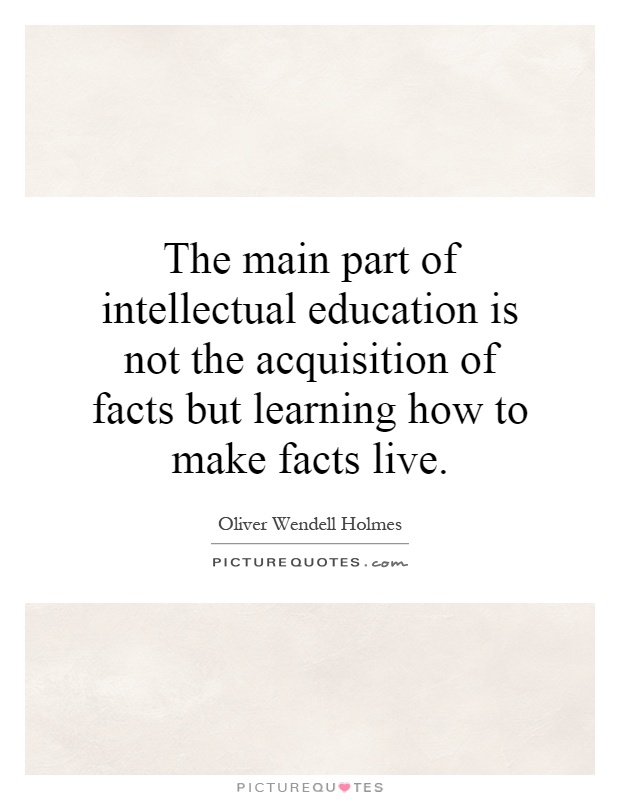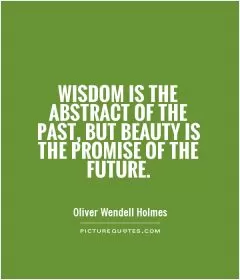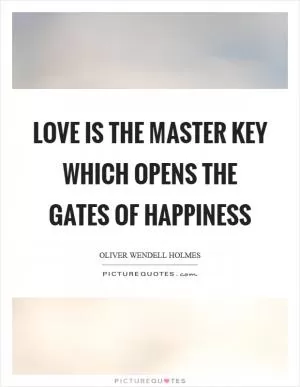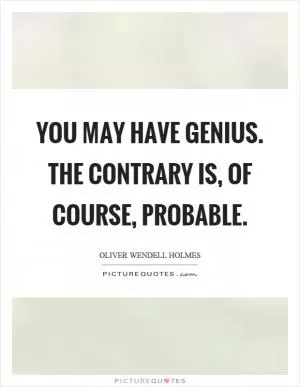The main part of intellectual education is not the acquisition of facts but learning how to make facts live

The main part of intellectual education is not the acquisition of facts but learning how to make facts live
Oliver Wendell Holmes, a renowned American jurist and Associate Justice of the Supreme Court of the United States, once famously said, "The main part of intellectual education is not the acquisition of facts but learning how to make facts live." This statement encapsulates the essence of true education - the ability to not just memorize information, but to understand it, analyze it, and apply it in a meaningful way.Holmes believed that simply accumulating facts and information was not enough to truly educate oneself. Instead, he emphasized the importance of learning how to interpret and utilize those facts in a way that brings them to life. In other words, it is not enough to know the what, when, and where of a particular subject; one must also understand the why and how behind it.
This concept is particularly relevant in today's fast-paced, information-driven society. With the advent of the internet and the abundance of information available at our fingertips, it is easy to fall into the trap of simply memorizing facts without truly understanding their significance. However, as Holmes suggests, true intellectual education goes beyond rote memorization and requires critical thinking skills, creativity, and the ability to connect disparate pieces of information to form a coherent whole.












 Friendship Quotes
Friendship Quotes Love Quotes
Love Quotes Life Quotes
Life Quotes Funny Quotes
Funny Quotes Motivational Quotes
Motivational Quotes Inspirational Quotes
Inspirational Quotes